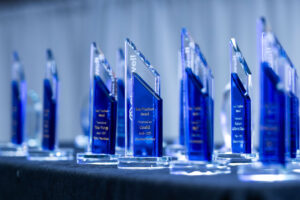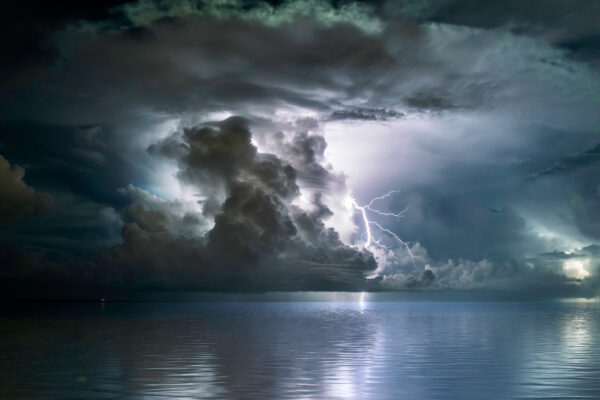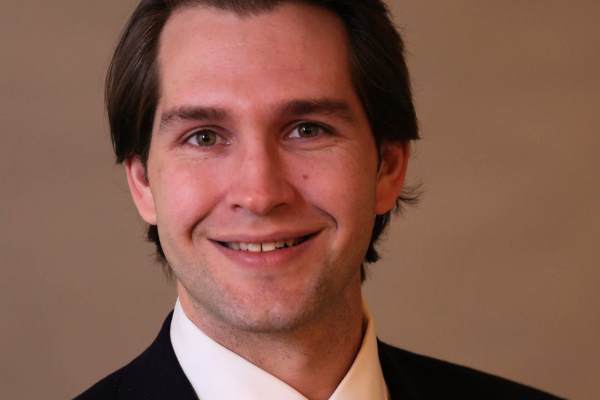Hydro One Leaders: Cross-Departmental Collaboration is Key to Success for Outage Communications, Emergency Management and Reliability
By Russ Henderson, Director of Research
The expectations for utility companies are higher than ever.
You have to deliver a high level of customer service, even – perhaps especially – during major outage events. You must provide clean, reliable service in an age where even brief power interruptions can bring about major disruptions to work and travel. You have to prepare for events of all kinds from storms and wildfires to cybersecurity attacks. And you have to do it all while keeping operations steady and costs and prices low.
How can any organization pull this off?
The key, according to leading utilities, is a top-down commitment to collaboration across departments.
With an already-strong legacy of customer service excellence, Ontario-based Hydro One recently embarked on a journey to further break down silos within the organization, aiming to provide superior customer experience before, during, and after outage events.
Three Hydro One leaders – who together will deliver the keynote address at the 18th annual PowerUp: Chartwell’s Outage Conference in Orlando June 3-5 – sat down with Chartwell to chat about the keys to becoming a customer-centric organization and the importance of networking and openly sharing solutions across the industry.
The leaders were Rob Globocki, Vice President of Customer Experience and Billing Operations; Lorraine Gray, Vice President of System Control/Grid Control; and Ted Lyberogiannis, Director of System Reliability and Emergency Management.
The Keys to Customer-Centricity
Rob Globocki’s customer experience team at Hydro One has long made efforts toward breaking down silos within the organization to foster collaboration between different departments. Recently, the team was organizationally integrated with the company’s operations teams, including those of Gray and Lyberogiannis. By aligning objectives across departments and working toward a common goal, Globocki said the company is pursuing a more empathetic approach to customer service.
The effect of this integration has been powerful. Lyberogiannis said that as Director of System Reliability and Emergency Management, he had always been focused entirely on preventing outages and preparing for them rather than on the customer experience.
“There are a lot of things now that (Rob’s) team is bringing to the table. We were like, ‘Oh my gosh, I never thought that was the right thing to do!’ I always had the blinders on. We’re going to talk a lot about that at the conference – some of the cool things that we’ve done since Rob’s team joined the operations organization,” he said.
Rob’s team has had a similar effect on Gray’s grid control organization. Humanizing customers and leveraging storytelling have been instrumental in driving a cultural shift towards a customer-centric approach, Gray said.
Referring to the demand created by customer electricity usage as “load,” for example, can seem dehumanizing, she said.
“It’s also important for us to humanize our customers. In the utility industry, we have other words that we call our customers, like ‘load.’ Load is not a humanized term. That’s a very good way of creating an arm’s length relationship with your customer,” Gray said. Utilities must instead use language and storytelling to humanize customers. She added that it’s important to remember that, on the other end of all the electrical devices on the grid, there is a customer.
“(Customers) see us as one end-to-end process. So, what that means is thinking differently about our teamwork, not in terms of just how we work together effectively across the different divisions within our organization, but really seeing our objective as the customer and then looking across those systems to be as effective as they possibly can be, as opposed to looking at them in terms of the little boxes and how those boxes connect.”
Lyberogiannis said that empowering employees to take action, rather than relying on intervention and approval from the top, is also key to creating a customer-centric culture.
“Historically at Hydro One, if Rob and I were in two different groups and we had some challenges or we had a disagreement, we would have to escalate that to our bosses and then the bosses would talk.”
Now, he said, everyone within Hydro One is empowered to act in ways that improve the customer experience.
“What that means is that now I don’t have to sit there and wait and escalate if I can do something that’s better for our customers and reach out. We’re more of a matrix organization now. So, we still have reporting relationships, but we’re empowered to act, and we have the capability to reach out to different organizations without having to disagree and escalate. And I think that’s something you’re seeing in the new Hydro One that we’ve brought forward over the last few years. We’re starting to see large benefits of being able to do that rather than waiting to escalate and let the bosses talk amongst themselves,” Lyberogiannis said.
Industry Events are Crucial for Success
All three said there is tremendous value in networking with other utilities to share ideas and zero in on best practices and effective partnerships.
“Sometimes we think we’ve got it all figured out and we know everything. The reality is that we don’t have everything figured out. We don’t have time to make every single mistake, and the advantage of this type of industry is that it’s very collaborative,” Lyberogiannis said.
“You have all these opportunities or challenges and you feel like you’re kind of beating your head against a wall trying to solve them. And what’s fun is you go to these conferences and you find out someone has already solved it, and then you get to take that back and you feel more hopeful in terms of what is possible. Or you at least feel less alone. Like OK, It’s not just us,” Gray said.
“Attending events such as this one, PowerUp, or other events that Chartwell puts on, they’re just fantastic. They’re invaluable. So we’re networking, we’re building relationships. We’re making friends across North America, which is fantastic, and we’re learning from each other. Yes, we’re going through some challenges together, but we’re leveraging those relationships and the events put on by Chartwell to lift our game to continually get better, to provide stronger operation, more efficient, more effective, and an overall better customer experience. So I’m looking forward to the event very, very much. We’ve been members and partners and, quite frankly, friends with the Chartwell team for over 20 years and I’ve really appreciated it, found great value, and I’m certainly looking forward to the upcoming event,” Globocki said.
Since 2007, PowerUp: Chartwell’s Outage Conference has provided excellent content and networking opportunities for utility professionals in the outage space. You can explore this year’s agenda here. If you have any questions about the event, you can always contact me at rhenderson@chartwellinc.com. We look forward to seeing you in Orlando at PowerUp!






